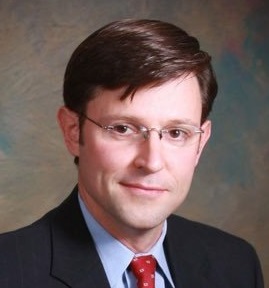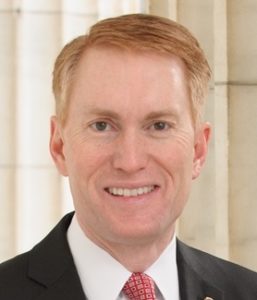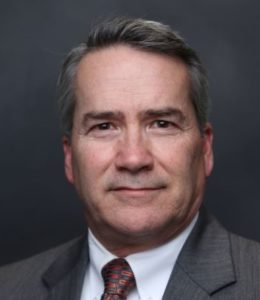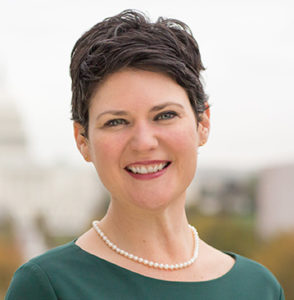Three Southern Baptist members of Congress are sponsoring legislation that seeks to repeal a law barring churches and other non-profit organizations that are exempt from paying federal income taxes from endorsing or opposing political candidates.
Southern Baptists Sen. James Lankford (R-Oklahoma) and Rep. Jody Hice (R-Georgia) – along with House Majority Whip Steve Scalise (R-Louisiana), a Catholic – have been trying to win repeal of the so-called Johnson Amendment each congressional session since 2016.

Rep. Mike Johnson
The 1954 law prohibits 501(c)3 organizations, the most common type of nonprofit in the United States ranging from charitable foundations to universities and churches, from intervening in elections to public office.
Joined this time by Mike Johnson (R-Louisiana) – a member of First Baptist Church in Bossier City and former conservative talk radio host and columnist – the trio this week reintroduced bills to allow charitable organizations to make statements relating to political campaigns if those statements are made “in the ordinary course” of carrying out the organization’s tax-exempt purpose.
The Free Speech Fairness Act, HR 949, was introduced Feb. 4 in the House of Representatives and referred to the Ways and Means Committee, the chief tax-writing committee in the House.
Companion legislation in the Senate, S 330, was read Feb. 5 and referred to the Committee on Finance.

Sen. James Lankford
Lankford, a 1994 graduate of Southwestern Baptist Theological Seminary who worked as a student ministries and evangelism specialist for the Baptist General Convention of Oklahoma before running for Congress in 2009, said the measure is needed “to prevent government intrusion and suppression of free speech.”
“The First Amendment right of free speech and right to practice any faith, or no faith, are foundational American values that must extend to everyone, whether they are a pastor, social worker, or any charity employee or volunteer,” said Lankford, who worships at Quail Springs Baptist Church in Oklahoma City. “People who work for a nonprofit still have constitutional rights to assembly, free speech and free press.”
Hice, also a Southwestern Seminary graduate with a D.Min. from Luther Rice Seminary, said as a pastor for more than 20 years he “witnessed firsthand the chilling effects that this IRS provision has had on our houses of worship and charitable organizations through intrusive IRS audits, steep fines, and even threats against a church’s tax-exempt status.”
“Simply put, our First Amendment rights shouldn’t be a bargaining chip in exchange for tax-exempt status, and it’s long past time that we repeal this deeply flawed policy,” said Hice, former pastor of First Baptist Church in Bethlehem, Georgia, and one-time first vice president of the Georgia Baptist Convention.

Rep. Jody Hice
In 2008 Hice endorsed presidential candidate John McCain from the pulpit as part a protest of the Johnson Amendment organized each year by the Alliance Defending Freedom, an advocacy group started by Campus Crusade for Christ founder Bill Bright, called Pulpit Freedom Sunday.
Johnson — who in the past served as legal counsel for Alliance Defending Freedom and other religious right groups such as the Family Research Council, National Day of Prayer Task Force and Louisiana Right to Life – said his goal in sponsoring the legislation is “unleashing the voice of the church once again.”
“Free speech is one of our most sacred, unalienable rights and no one should be subjected to censorship by the federal government,” said Johnson, first elected to Congress in 2016. “Yet, for more than 60 years, pastors and churches have been silenced in sharing their message.”
“The Johnson Amendment stands in stark contrast to who we are as Americans and should be repealed immediately,” he said.
Long non-controversial, the Johnson Amendment has been under attack ever since the election of President Donald Trump. Shortly after taking office Trump pledged to “get rid of and totally destroy” the electioneering ban in order to “allow our representatives of faith to speak freely and without fear of retribution.”
Defenders of the Johnson Amendment say repeal would inject dark money into political campaigns by allowing people to channel campaign funds through 501(c)3 organizations not bound by reporting requirements of other campaign finance laws.

Amanda Tyler
Church-state watchdog groups including the Baptist Joint Committee for Religious Liberty have worked hard to defeat attempts to weaken or repeal the Johnson Amendment, saying the law protects houses of worship and other nonprofit organizations from political pressure and additional dangers that come with endorsing and opposing candidates.
The BJC website offers a two-sided printable document outlining reasons that people of faith view changing the law as “unnecessary, unwise and unwanted.”
BJC Executive Director Amanda Tyler testified last October before a Senate subcommittee that the Johnson Amendment wisely separates the non-profit sector from partisan campaigning.
“As campaigns have become more constant in our culture and as billions of dollars are being spent in campaigning, I think that’s been a good thing, to keep our houses of worship and other 501(c)3s non-partisan,” Tyler said.
“You know, sometimes our non-profit communities are some of the last places that we can go and not hear a political ad,” she said. “They’re also some of the last places that are not divided by how we vote.”
